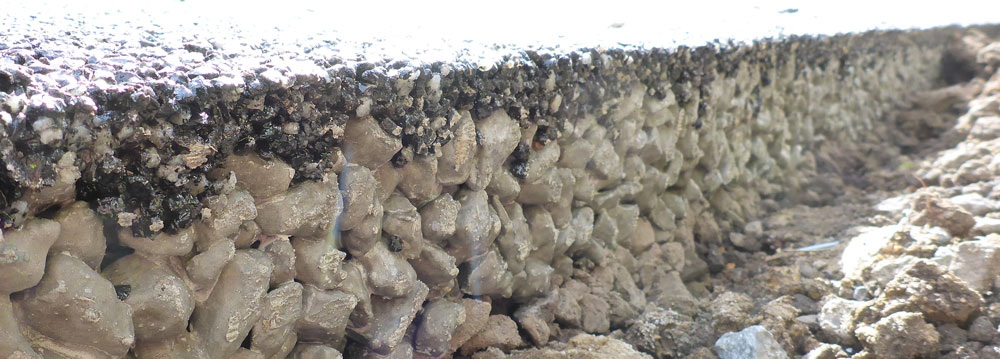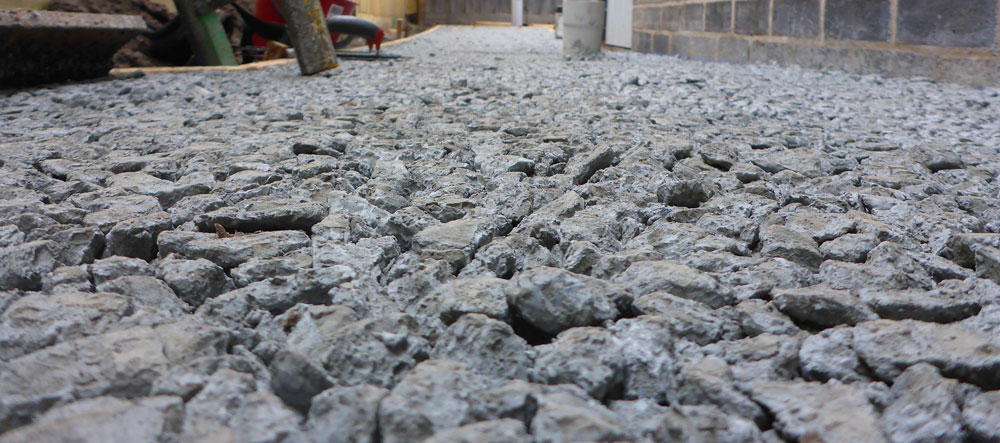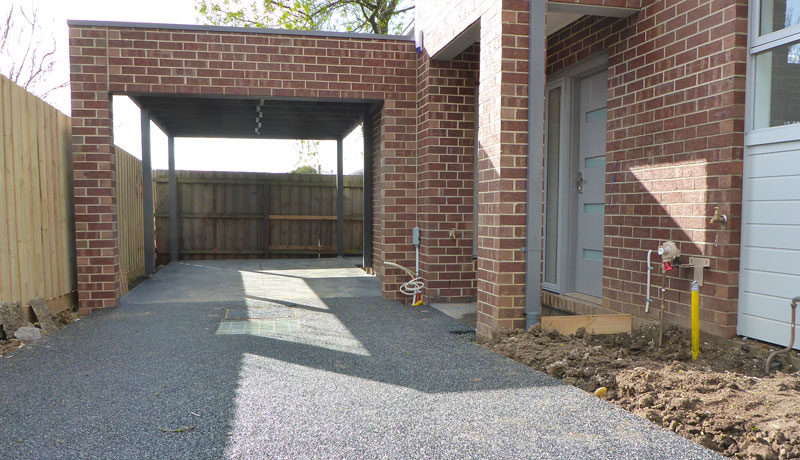A significant rise in the number of architects creating both residential and commercial builds have been specifying Permeable Concrete as a surface in landscape plans. Permeable concrete leaves a finessed look and complies with Council regulations – normally in tree protection zones.
So we thought we’d give you a run-down of the porous concrete we use as a base for our permeable paving, and why you can’t use it by itself for driveways.
What Is Permeable Concrete?
Permeable concrete, is also known as with pervious concrete or porous concrete. This type of concrete is designed to enable water to pass through it and be absorbed into the ground below, rather than sealing the surface like traditional concrete.
With this structure, porous concrete promotes effective stormwater management to allow rainwater to infiltrate into the ground, where it can be naturally filtered. Unlike traditional concrete or asphalt, this significantly decreases flooding and water quality issues.

Why Is Permeable Concrete Used?
Permeable concrete is used to provide a strong and stable base for permeable paving installations. Councils love permeable paving due to its stormwater management, which has seen it become a regulation. Many of our projects we install permeable concrete for include driveways, roads and paths for homes, community and commercial spaces.
Permeable Concrete & Paving
The demand for permeable concrete in landscaping projects stems from its aesthetic design and functional surface to manage water flow. However, any paving anywhere is only as good as its base. So the choice of base will ultimately determine the strength of the paving. We use a no-fines concrete base for our paving, as it is the most stable and strong option available.

What is no fines concrete?
This type of concrete is a mix without the “fines”, which are small aggregates, such as sand. As a result this leaves a large aggregate (typically 20 mm screenings) and a cement slurry binding them together. This then creates a large network of voids between the aggregate.
The depth of the concrete determines the strength of the pavement. For a domestic driveway, we install the concrete at a minimum depth of 100 mm. For commercial strength applications, we’d seek advice from an engineer on the depth required for the desired loads.

Why can’t porous concrete be used by itself?
Porous concrete has great compressive strength. But the size of the aggregate and brittle nature of the cement slurry binding them means that if you try to use no-fines concrete as a driveway by itself, you quickly get rocks being loosened off the surface. Basically, it’ll turn into a gravel pit.
This is where our permeable paving comes in. With it’s hand trowelled finish, it provides a grippy yet smooth surface that won’t be damaged by vehicle traffic. And as a pavement, it is incredibly strong thanks to the permeable concrete base.

We have worked with our suppliers to develop the perfect concrete mix for permeable paving applications. Pair that with it’s lifetime warranty, and you’ve got the best choice for your permeable driveway!
So if your plan specifies permeable concrete then get in touch with us today!